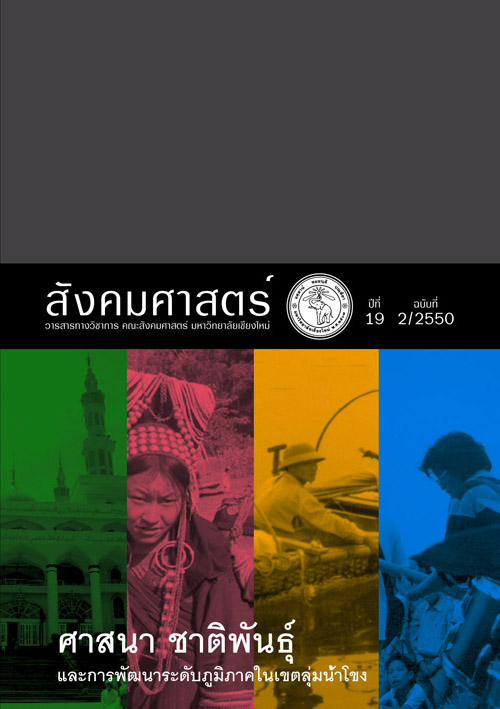อภิมหาโครงการพัฒนากับชะตากรรมของผู้คนชุมชนสองฝั่งโขง
Main Article Content
Abstract
The Great Mekong River is one of the most important rivers in Asia. The area where the Mekong conjoins with several tributaries in northern Thailand and Laos is characterized by diverse ecosystems, seasonal fluctuation of the environmental conditions, and rich varieties of fish. During the wet season, the flood waters inundate river basin and migratory fish enter the Ing river, one of the tributaries of the Mekong, for spawning. The flooded riverine provides spawning grounds for the migrators. The livelihood of local people in the Mekong and Ing watershed areas have depended upon migratory fish and riparian environment for centuries. Depending on seasonal fish migration behavior, people have exploited aquatic resources using various techniques and fishing gears at different places and ecosystems. Some two hundred reservoirs and ponds along the river provide not only good fishing grounds for local people, but also important spawning and nursery grounds for many fish species.
During the past decade, however, the Greater Mekong Sub-region has gone through a great deal of changes. The construction of major dams in China and the depletion of riverine forest not only deprive spawning sites for migrating fish from the Mekong River but also bring about degradation of local cultures and valuable indigenous knowledge concerning biodiversity and fish ecology.
This research project is an attempt to study the indigenous knowledge and biodiversity management practices of local peoples on the use of aquatic and agro-forestry resources and their transformation, to identify fish and animal species in the Mekong and Ing watershed areas and the impact of ecological changes on fish ecology, to make socio-economic analysis of aquatic and forest products in relations to local economies and cultures, and to identify local knowledge and sustainable management practices of biodiversity management.
Article Details
All written articles published on Journal of Social Sciences is its author’s opinion which is not belonged to Faculty of Social Sciences, Chiang Mai University or is not in a responsibility of the journal’s editorial committee’s members.


